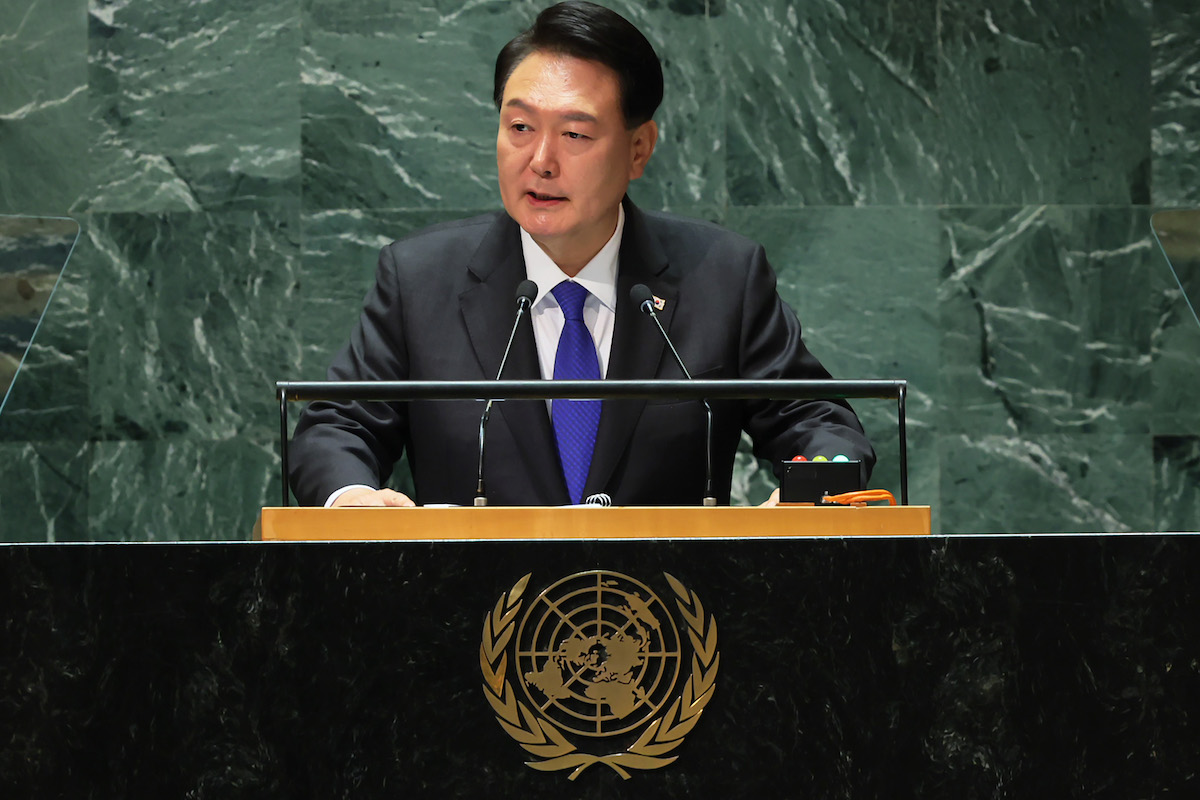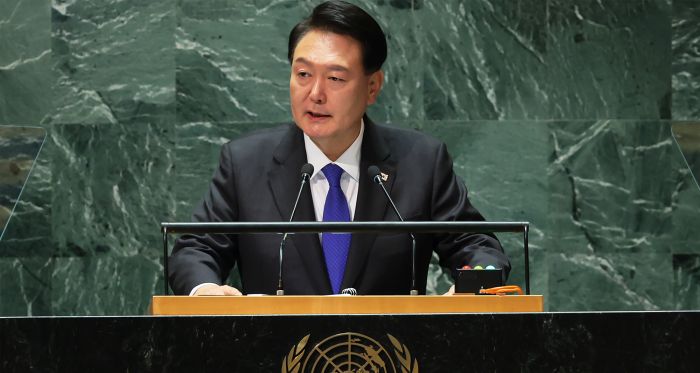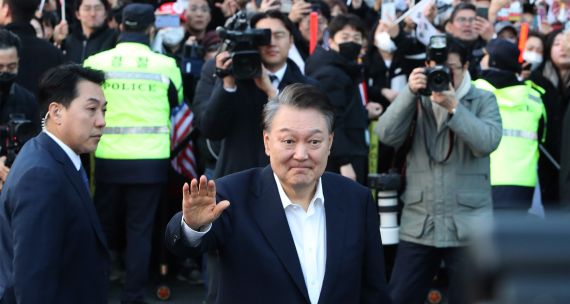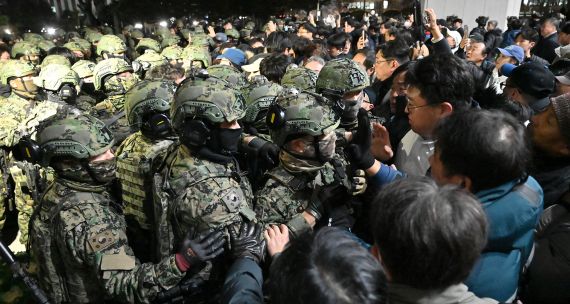In response to a rapidly evolving geopolitical landscape, South Korea’s self-designation, by current president Yoon Suk Yeol, as a “global pivotal state” suggests that the country has reached a turning point in its foreign policy. While it was once concerned almost entirely with its immediate global and regional security context, South Korea is now more expansive in its approach in terms of the role it envisions for itself in helping to shape the international order.
In some respects, the ‘global pivotal state’ concept is novel in South Korean foreign policy thinking. In other respects, it is not such a radical departure from earlier foreign policy stances. Nevertheless, this more ambitious global stature raises questions about South Korea’s capacity for active engagement and intervention in ‘hot button’ international issues such as Taiwan and crises in the Middle East. As South Korea assumes a more prominent role on the global stage, what opportunities are there for alignment with Canada’s strategic interests, especially in the Indo-Pacific region?
What is meant by ‘global pivotal state’?
While the term global pivotal state has not been officially defined by South Korea’s Ministry of Foreign Affairs or in presidential policy objectives, its meaning can be inferred from the speeches of President Yoon Suk Yeol and his current and former cabinet members, the country’s 2023 National Defense Strategy, and analysis by foreign policy experts. In general, the concept suggests that South Korea aspires to become a country capable of altering the distribution of power and creating or maintaining stability within the international political order, and to do so at a level commensurate with its economic strength, military capabilities, and global cultural influence.
Another important feature of this approach is that South Korea is seeking to work in solidarity with like-minded partners in terms of values and norms, and even to take a leadership role in shaping these norms. This leadership role extends to international co-operation and active participation in addressing global challenges such as climate change, pandemics, food insecurity, and human rights in the Indo-Pacific region and beyond.
What is the precedent in South Korean foreign policy for this pivot?
South Korea’s recent strategic pivot traces back to President Roh Tae-woo’s (1988-1993) introduction of ‘Nordpolitik,’ which focused on outreach to and normalizing relations with China and the Soviet Union. Nordpolitik embraced the ‘middle power’ concept, which, to South Korea, meant bolstering its stature so that it would no longer be perceived as ‘small and weak’ nor ideologically and diplomatically isolated. Rather, it would develop the capacity for independent diplomatic relations with a broad spectrum of countries, regardless of their ideological or diplomatic distance.
Roh’s successor, Kim Young-sam (1993-1998), pushed fo rglobalization (segyehwa), which emphasized aligning with and establishing international standards, particularly in trade and technology. South Korea’s leadership in mobile and internet technologies, especially in commercializing CDMA technology, a second-generation digital mobile communication technology, in 1996 — adopted as a standard by major economies like China, Japan, Russia, and the United States — demonstrated its capacity to influence global standards. These milestones were instrumental in President Kim’s sales diplomacy, including extending diplomatic efforts to promote commercial interests and foster trade relationships, in Latin America and Southeast Asia. While the goal of sales diplomacy was economic, it also involved leveraging diplomatic relations to create favourable economic conditions for South Korean businesses, negotiating trade agreements, and generally enhancing the country’s economic presence in global markets. During this time, South Korea also joined the World Trade Organization (1995) and the Organisation for Economic Cooperation and Development (1996).
Kim’s globalization strategy provided a stepping stone for South Korea to lead the latest 5G mobile network technology in the advanced mobile and IT sectors, significantly elevating South Korea’s international standing and fostering high expectations for its “pivotal” role in shaping global norms and practices, even beyond technology.
In the 2000s and 2010s, South Korea focused on being a ‘balancer’ or ‘equalizer’ in Northeast Asia, a ‘pivotal middle power,’ and an ‘arbiter’ in regional and global affairs, which all posited South Korea as a “pivotal” (jungchujeok) influencer in shaping the peninsula’s future. South Korea’s strategic approaches were not confined to security issues but extended to addressing environmental concerns, advocating for human rights, and promoting economic co-operation, showcasing South Korea’s comprehensive approach to diplomacy and its ambition to influence a broad spectrum of international issues.
These earlier strategic approaches demonstrate a clear intent to contribute proactively and independently to peace and stability in South Korea’s immediate neighbourhood and beyond. Each strategy, while distinct in its approach, consistently sought to elevate South Korea’s global stature, providing the tools to navigate through the main challenges and complexities of regional and global dynamics.
More recently, South Korea’s strategic shift under President Moon Jae-in (2017-2022) to a New Southern Policy (NSP) aimed to elevate co-operation with the Association of Southeast Asian Nations (ASEAN) and India to levels comparable with major powers such as China, Japan, Russia, and the U.S. The NSP was rooted in the broad goals of seeking alternatives for resource and commodity trade and securing major maritime routes.
During the Moon administration, the escalating U.S.-China rivalry prompted South Korea to embrace a strategy of ‘strategic ambiguity,’ maintaining a balance with major initiatives like the U.S.’s new strategy for the Indo-Pacific and China’s Belt and Road Initiative. Although initially cautious, South Korea aligned with The U.S. Vision for a Free and Open Indo-Pacific in 2021, fostering collaboration that emphasized non-traditional security and socio-cultural ties in the ASEAN region.
In what ways is the global pivotal state concept a departure from precedent?
In recent years, South Korea has been fortifying its position as a global pivotal state through a series of new partnerships and initiatives:
- In 2022, President Yoon became the first South Korean president to attend a NATO summit. South Korea and NATO also launched a new partnership program to strengthen co-operation in areas such as arms control, counterterrorism, and cyber-defence. South Korea’s ability to innovate and scale semiconductor production has positioned it as a key player in such partnerships.
- South Korea is also capitalizing on its status as a leading semiconductor exporter and vital arms provider to NATO countries. This ambition is highlighted by its readiness to address Europe’s critical ammunition needs for Ukraine, showcasing South Korea as an essential supplier beyond European borders.
- In 2023, Seoul hosted the first Korea-Pacific Islands Summit, which focused on addressing regional security concerns such as climate change, sustainable development, and enhancing co-operation in technological innovation and health security among Pacific Island countries. This summit facilitated dialogue on critical global issues with the countries South Korea had not previously paid attention to and committed tangible support for the development and security of the Pacific region.
- In 2024, South Korea will host the first Korea-Africa Summit in Seoul. This gathering will focus on strengthening the partnership between South Korea and African countries in trade, investment, infrastructure, and development, building a future of “sustainable co-prosperity” between the two regions.
- Under Yoon, South Korea has resumed and expanded its participation in joint military drills, which had been scaled back or cancelled under his predecessor to avoid provoking China, North Korea, and Russia.
- South Korea has also had security discussions with key global players—including Australia, Canada, Japan, and the U.S.—demonstrated by increased participation in multilateral security exercises and dialogues between 2022 and 2023.
- The high-level Japan-South Korea-U.S. trilateral Indo-Pacific dialogue, inaugurated in January 2024, aims to strengthen co-operation on regional security, economic development, and uphold a ‘free and open’ Indo-Pacific order through regular discussions.
It should be noted that there are also points of continuity between the Moon and Yoon administrations. That includes treating ASEAN as a priority. For example, in November 2022, President Yoon, at the Korea-ASEAN Summit in Cambodia, stated that what he “wish[es] to pursue aligns significantly with the ‘ASEAN Outlook on the Indo-Pacific’ in its goal for open and inclusive cooperation. ASEAN is the most crucial co-operative partner in advancing our IPS.” This reaffirmed the significance of ASEAN in South Korea’s foreign policy and maintained Moon’s view that ASEAN’s role is crucial in South Korea’s strategic calculus in the region. In its 2023 Action Plan for a Free, Open, and Prosperous Indo-Pacific (IPS Action Plan), the Yoon government also preserved some initiatives from the previous administration, including the Korea-ASEAN and Korea-Mekong co-operation funds.

What are South Korea’s challenges in becoming a global pivotal state?
The global pivotal state approach, while underscoring South Korea’s diplomatic agility and ambition, also prompts scrutiny of its ability to navigate complex global issues, from the Taiwan Strait to tensions in the Middle East. For instance, South Korea is hesitant to become directly involved in the Taiwan issue, but there is speculation that the U.S. could ramp up pressure on Seoul to do so, perhaps to provide rear support for a U.S.-led coalition or to play a role in maritime operations. This potential engagement reflects the broader pressures facing South Korea as it navigates its complex relationships with both the U.S. and China, striving to uphold its strategic interests while managing diplomatic sensitivities.
Moon Chung-in, a special advisor in the Moon administration, expressed concerns about the Yoon administration’s IPS Action Plan. While critiquing its potential to complicate South Korea’s relations with China, he emphasized that South Korea’s geopolitical position does not allow for antagonizing China without facing significant diplomatic and economic repercussions. Moon suggested re-evaluating the “Asia-Pacific” concept to emphasize inclusion, co-operation, and stability, similar to existing mechanisms such as the Asia-Pacific Economic Cooperation.
How have South Korea’s neighbours and allies responded to this shift?
International responses to South Korea’s new foreign policy orientation, through its own Indo-Pacific strategy, have been largely positive. Key partners like Australia, Canada, and the U.S. have expressed support for the alignment and complementarity with their own strategies. Specific areas of collaboration include cybersecurity, economic security, climate action, and regional stability. These domains represent mutual interests where collective action is deemed beneficial for ensuring peace and prosperity in the Indo-Pacific region.
China’s response to South Korea’s IPS and global pivotal state concept has been more nuanced. While official statements have been cautiously optimistic, emphasizing continued partnership and regional stability, analysts closely observing the South Korea-China relationship suggest a more complex undercurrent. Experts speculate that while China may publicly support regional collaboration initiatives, it remains wary of any strategic moves that could tilt the balance of power or significantly enhance U.S. influence in the region. China is likely to adopt a pragmatic approach, closely monitoring South Korea’s actions and the global pivotal state’s implementation to assess its impact on China’s strategic interests in the Indo-Pacific. This analysis indicates that while South Korea’s global pivotal state aims to foster co-operation and stability, it must navigate the delicate dynamics of regional power politics, balancing its aspirations with the realities of existing geopolitical tensions.
How might the global pivotal state shift impact Canada-South Korea relations?
South Korea’s shift to being a global pivotal state is poised to significantly enhance its relationship with Canada, aligning both countries’ strategic interests and co-operation frameworks more closely than ever. This evolution marks a transition from conceptual discussions to the practical implementation of joint initiatives and projects, as evidenced by South Korea’s comprehensive IPS Action Plan, which details collaboration across a wide spectrum of areas, including economic security, clean energy, artificial intelligence, and cultural exchange.
Opportunities for Canada-South Korea Co-operation
2024 IPS Action Plan Areas of Bilateral Collaboration |
Relevant Events & Projects |
|
|
Continuation of the High-Level Economic Security Dialogue
|
Inaugural High-Level Economic Security Dialogue in 2023 | |
|
Ongoing efforts to identify collaboration projects based on the Korea-Canada MoU on Critical Minerals Supply Chain, Clean Energy, and Energy Security, and expand public-private partnerships
|
South Korea’s investments in mining and clean tech companies in Canada | |
|
Promotion of joint research and expert exchanges in artificial intelligence with Canada
|
Joint AI programs in Toronto, collaborations in Montreal | |
|
Exploration of new co-operative agendas through high-level channels like the Korea-Canada Joint Science and Technology Cooperation Committee (JSTCC)
|
2022 JSTCC biannual meeting in Seoul | |
|
Enhanced consultations through the Canada-led Global Carbon Pricing Challenge
|
Bilateral Climate Change Dialogue MoU on climate change co-operation | |
|
Implementation of ‘2024-25 Korea-Canada Mutual Cultural Exchange Year’
|
Canada-Korea Co-creation Fund Korea Week in Ottawa | |
South Korea’s pursuit of a pivotal role on the global stage, in concert with Canada’s strategic objectives, heralds a new era of co-operation that not only enhances the bilateral relationship but also contributes to broader regional stability and prosperity, reinforcing the significance of a South Korea-Canada partnership in shaping the future of the Indo-Pacific region.
This continuity, rooted in a history of proactive international engagement since the 1980s, positions South Korea as a dynamic participant on the world stage. Given that the principles underlying the global pivotal state will likely persist beyond the current administration, there will be continued alignment with Canada’s priorities and opportunities to deepen relations.
• Editor: Erin Williams, APF Canada Senior Program Manager.





